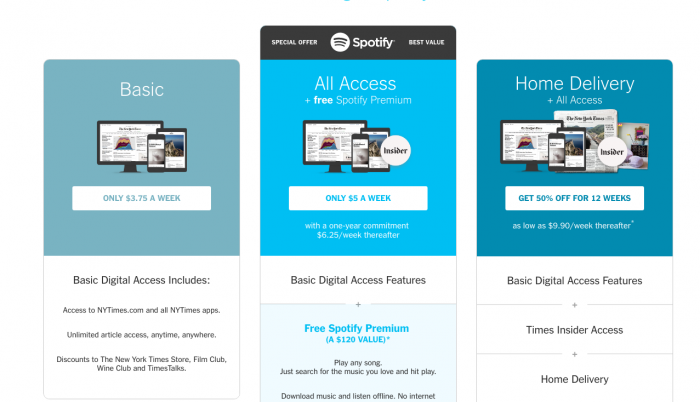Following about a month of discussion, Wikipedia editors have decided to prohibit the use of the Daily Mail as a source in most situations, writing:
[The] Daily Mail should not be used for determining notability, nor should it be used as a source in articles. An edit filter should be put in place going forward to warn editors attempting to use the Daily Mail as a reference.
People are okay at remembering where they get news online (but still think Facebook’s a news outlet)
Spend a day clicking back and forth between online news and other stuff and it’s not that surprising that you might not remember what you read where. A study out Thursday from the Pew Research Center looks at how Americans get news online; whether they can recall the names of the news sources that they looked at a little later; and which news experiences inspired further actions like “sharing, searching for more information or talking about it with others.”
Facebook and Google tackle fake news ahead of French elections

/https%3A%2F%2Fblueprint-api-production.s3.amazonaws.com%2Fuploads%2Fcard%2Fimage%2F373933%2Fad6acfa0-4290-4813-b87a-5af4a47766c9.png)
“Fake news” is the crisis du jour for online media in 2017, and now, two tech giants are working together to stop it from wrecking a pivotal election.
…Well, another pivotal election.
Take a peek at the bestseller lists and it’s clear that people are grappling with President Trump by reading things they might not have otherwise. As of this morning, George Orwell’s 1984 is No. 3 on Amazon’s list of bestselling books and Margaret Atwood’s The Handmaid’s Tale at No. 8. But in this time of filter bubblesand “Blue Feed, Red Feed,” it’s important to stretch beyond dystopian fiction (and Facebook) to get an idea of what the side opposite to yours thinks.
How do you get your reporting about a public health issue to more people when a significant percentage of your audience doesn’t have consistent access to the Internet? For two news organizations in Chicago, the answer involves texting, in-person events, and, yes, even print.,

As former Netscape CEO Jim Barksdale once said, “There are only two ways to make money in business: One is to bundle; the other is unbundle.” Media companies, eternally swinging (or being swung) between the two, may be drifting back into the bundling phase.

Tony Haile’s anticipated startup Scroll and Blendle’s new premium product both want to bring together journalism from a variety of sources into a unified platform. And on Wednesday, The New York Times stepped outside journalism, announcing it was partnering with the streaming music service Spotify on a joint subscription offering. The two companies are partnering on a limited-time deal that will offer new Times digital subscribers free access to Spotify’s premium service, which runs for $120 a year by itself.
As former Netscape CEO Jim Barksdale once said, “There are only two ways to make money in business: One is to bundle; the other is unbundle.” Media companies, eternally swinging (or being swung) between the two, may be drifting back into the bundling phase.

Tony Haile’s anticipated startup Scroll and Blendle’s new premium product both want to bring together journalism from a variety of sources into a unified platform. And on Wednesday, The New York Times stepped outside journalism, announcing it was partnering with the streaming music service Spotify on a joint subscription offering. The two companies are partnering on a limited-time deal that will offer new Times digital subscribers free access to Spotify’s premium service, which runs for $120 a year by itself.
Discover more from Erkan's Field Diary
Subscribe to get the latest posts sent to your email.